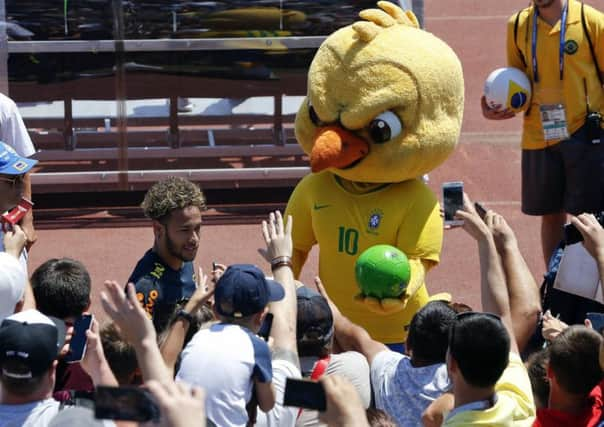How an angry little bird put a big smile on Brazilian faces


The team’s new mascot – a yellow canary with an angry face that represents some of the fans’ frustration after falling short at their home World Cup four years ago – has become a huge sensation everywhere it goes in Russia.
Fans unofficially dubbed it the “Canarinho Pistola,” which translates to “P****d-Off Little Canary” or “Angry Little Canary.”
Advertisement
Hide AdAdvertisement
Hide Ad“Man, what a character he is,” Brazil coach Tite said. “He has his own charisma.”
The bird, always dressed in Brazil’s traditional yellow and blue strip, resembles an angry-faced Tweety, the Looney Tunes character. It boasts a “bad boy” attitude and a tough-looking walk, contrasting to the cute image of the unpopular canary that had always represented the national team.
Brazil historically never fully embraced the tradition of mascots in sports, but things changed when the Brazilian football federation turned its nice little canary into a mad-looking figure to try to bring fans closer to the “Selecao” ahead of the 2018 World Cup.
“We wanted to represent this desire of the Brazilian to always want to win in soccer,” federation marketing director Gilberto Ratto said in Russia. “The mascot has the face that every Brazilian puts on when they are about to go play soccer, always with that determination to win. It’s the same expression you would see in Neymar’s face in a World Cup final or in someone playing a pick-up game among friends.”
The new canary is not allowed to appear at matches in Russia because of Fifa’s rules protecting the official World Cup mascot, Zabivaka the wolf, but it accompanies the Brazil squad almost everywhere they go, appearing outside stadiums before matches and in some training sessions.
The canary, in Kazan ahead of the team’s quarter-final with Belgium today, has also became popular outside of the realms of football, as it represents the population’s overall dissatisfaction in a country facing an ongoing political crisis, increased violence and unstable economy.